When it comes to matter of mental health, I believe that table top games can be a tremendous force for good. Will they completely fix any problems a person might have? Absolutely not, but if engaged with properly, they can be a powerful tool that can help people reconnect with each other and themselves.
When I first got into the hobby I found that playing board games really helped me achieve what those in the mindfulness industry call the "flow state"; a meditative state in which someone is focused on an activity and negative thoughts fade away. When in this flow state it's not uncommon for the individual to be unaware of the passage of time, so absorbed are they with the task they are undertaking. Meditation is a great way to achieve this, but that requires much practice and discipline. Board games are far easier to access, an let's face it, more fun to indulge in.
I am very open about my own lifetime of mental health struggles, and was formally (finally) diagnosed with Bipolar Type 2 back in 2024. This diagnosis changed my life. Not only was I able to access to support and medication that I needed, but so much of my life that I struggled to understand suddenly made a lot more sense. Thanks to the work of the medical professionals who helped me, I now feel what many would consider "normal", which is still a novel experience for me.
No amount of counselling or medication will ever make my bipolar disorder go away, however, and it is still a daily task for me to stay on top of my own mental health. Some days are easier than others and I am grateful for every good day that I have. As you can imagine, table top games are a frequently relied upon weapon in my arsenal.
Recently I have been feeling another turn in the never ending cycle of my mood, which often hits at the changing of the seasons, and it's been feeling increasingly autumnal recently. I love the autumn but as the nights start drawing in and the weather turns ever more grey, I find my ever present depression does the same. It might be a shadow of it's former self, thanks to my brain medicine, but it can still take a few days or a week for me to move past.
The other day I was feeling particularly low and also spending the day by myself so I decided to turn to a session of solo-gaming to keep me occupied. Initially I pulled out Cartographers: Heroes, which is a fun and fairly simple flip-and-write in which you reveal cards and fill out spaces on a map based on the shape and land-type shown. Think Tetris but you're constructing a map and scoring points based on the configurations you put together.
It's a fun game and as a solo experience it was fairly meditative, but it wasn't doing the job I needed it to. I was going through the motions, and for want of a better word, I was enjoying myself but it wasn't pulling me out of the brain fog. It was a distraction while I played it but I was far from that flow state I desired.
After some lunch (noodles, my comfort food), I decided to clear the kitchen table and bring out the big guns, Zombicide: Undead or Alive. This game comes in a reassuringly weighty box, packed tightly with miniatures, cards, and tokens. I brewed some coffee as I slowly set up the next scenario in the booklet, laid out all the character boards, reviewed my objectives, and then got stuck in.
Zombicide: Undead or Alive is a Wild West take on the classic Zombicide formula (think Left 4 Dead - if video games are your thing) with some minor quality of life improvements, and thematically it more than sticks the landing. Everything about the game design screams both Yee and Haw with steam trains, gattling guns, and fanning the hammer of a six shooter into hordes of the undead. It's a tense ride and perfectly balances increasing the difficulty with the levelling up of characters to ensure you never feel entirely on top of any situation. A bad dice roll or an ill advised move is all it takes to become overwhelmed by the ever growing crowds of rotting corpses.
I love a game that combines strategy with blind luck in the roll of some dice, and oh boy does this game deliver on that promise. It could be said that with dice rolling and drawing items from a deck there is slightly too much chance involved, some sessions feel doomed from the start if character fails to get kitted out effectively in the first couple of turns. This doesn't diminish the enjoyment I get from it though, as you need to go into this game with the frame of mind that it's not over until it's over. Just as a bad roll of the dice can spell the end for your luckless cowboys, a few good rolls can completely turn the tables and bring you back on top.
As it happens, I had a good run and almost beat the scenario, right up until one character failed a couple of rolls and was swarmed by runners (this game answers the eternal question of fast or slow zombies by having both of them). The game had my heart racing and my mind abuzz with strategies to eek out survival for just a little bit longer. Needless to say, I was definitely distracted from my previous spiral of negative thoughts for I don't know how long.
It got me thinking about why Zombicide succeeded when Cartographers failed. Cartographers is a far more relaxed experience, which on the face of it seemed like a better fit for the low mood I was in, but what I realised was that I needed rules. I needed a juicy set of rules to get my brain computing without straying too far into the realms of a crunchy eurogame. I needed a theme that was exciting and just a little bit silly. Zombicide got the cogs in my brain turning and for a few hours (I assume, I still have no idea how long I was playing for) I was lost in the world of the game. How could I be anxious about the nebulous future when I had tangible little plastic zombies to direct my anxiety towards? How could I feel hopeless when a steam train came barreling down the tracks, promising a way out of the undead nightmare?
Board games give structure to a situation. I've written before about how they give structure to social situations and help us get to know each other better, but what I realised the other day was that the structure they provide can also be psychological. When my mind is messy and wandering to unhelpful places, games can provide a framework for me to build my thoughts around. They are tangible and interactive yet also activate the imagination, building worlds out of nothing more than a few bits of cardboard and plastic.
Did Zombicide cure my depressive mood? No. That remains something that I just have to ride out. But it did provide me with some respite during the game and for a good while afterwards. It gave me the distance from my negative thoughts that I needed to remind myself that as always, these episodes are only temporary. I've survived them before, I will survive them again.
Table top gaming provided me with clarity and refuge from a storm and I think they have the power to help others in this same way. It's the driving force behind Hand Limit, to reach out to other people who might feel the benefit of play and provide them with the tools they need to help them overcome their own battles.

.jpeg)

.jpeg)

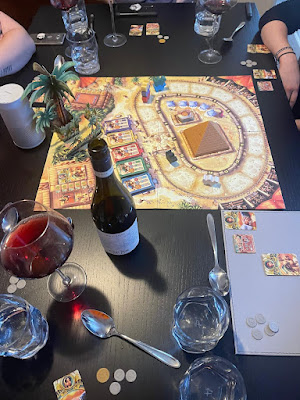









.jpeg)

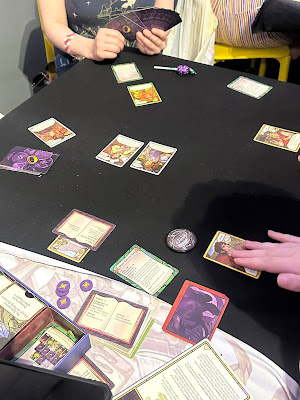

.jpg)



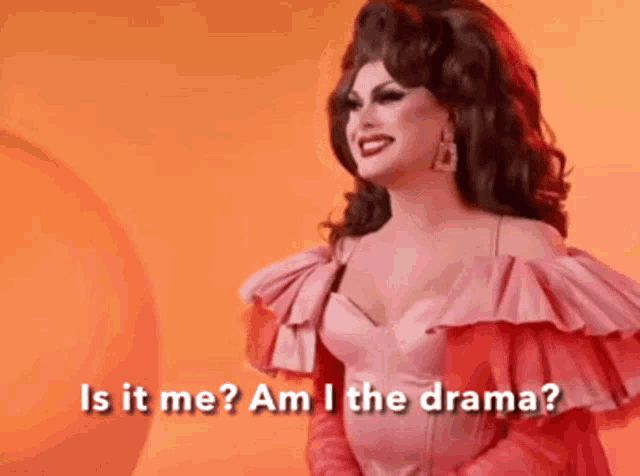



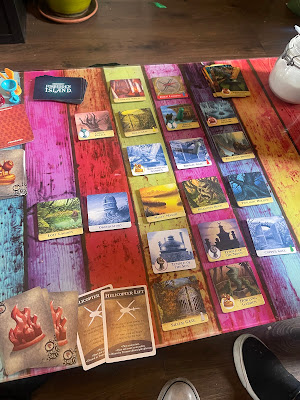

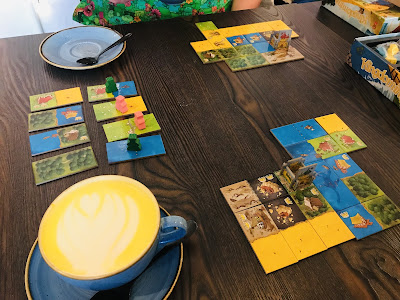


.jpg)